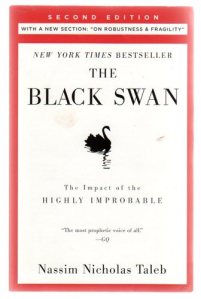A letter to a good friend, who is struggling to manage coworkers without getting angry at them for being “stupid.”

Dear Theophilus,
When I was in the 7th grade, my history teacher made us write poems on the virtues as part of a medieval-style morality play. If I remember correctly, I was assigned humility. Needless to say, I didn’t get it. I don’t think this would surprise any of my friends who knew me during those early years.
But during that transition period during my freshman year of college, C.S. Lewis taught me that one of my biggest vices was pride. In fact, he said “pride leads to every other vice.” If I wanted to develop character, I needed to cultivate the virtue of humility. The problem is, of course, that it’s rather difficult to “work on” humility. As soon as you start succeeding, you think “I’m so proud of myself for having become more humble” – at which point, you must start the process over again.
One of the most helpful changes I made to improve my humility was influenced by psychology research. Psychologists use a term called attribution bias to describe how we’re inclined to attribute blame for others’ behavior on themselves or their character, while we attribute blame for our own behavior to our environment or circumstances. That sounds a little bit convoluted; the examples are more obvious.
“That person didn’t know this because they’re an idiot!” = attribution to person
“That person didn’t know this because they weren’t taught it in a good way” = attribution to situation
Most people have a self-serving bias, that is, they attribute negative qualities to others based on being a bad person, while attributing negative qualities or actions of oneself to the situation. “They lost the game because they sucked” vs. “I lost the game because the ref made a bad call.” And our bias for positive qualities is equally self-serving. We take the exact opposite with good qualities – for ourselves, we attribute good things to positive character while for others we attribute good things to their environment. We’re more likely to say, “I scored well on that test because I’m a hard-worker who studied hard” rather than, “I scored well on that test because my dad taught me to value education.” For others, we often will say, “she’s just nice because she doesn’t have to deal with all the idiots I have to deal with” instead of saying, “she’s nice because she is just a nice person.”
I think it’s interesting to note that the more we like a person, the more willing we are to attribute positive things to their character. Maybe that’s why the adage goes “love others as you love yourself.” When we love other people, we treat them more like we treat ourselves. We offer up a them-serving bias just like our self-serving one.
Part of my process of learning humility involved deliberately trying to acknowledge what other factors might be in play in the behavior of others, and what parts of my own behavior were caused by lapses of character and not merely situations. This is why I’m sympathetic to a lot of the conversation about privilege – because it acknowledges the untold ways my situation has benefited me – and hostile toward one aspect of it – the part which also feels wrongly deterministic, making all outcomes caused by situations rather than people.
When I recognize all the manifold ways I have benefited from my situation (good parents, good grandparents, decent money, an incredible set of friends, a rich library), it forces me to be grateful for all the blessings I’ve been given instead of taking pride in my own character. When I confront situations where I’ve performed negatively, I try to acknowledge my own character lapses rather than simply attempting to shift blame to my situation. This doesn’t have to be 100% – so many situations are part character and part environment. (Like that other situation we were in – it was partly because I was tired and partly out of a good intention, but also partly because I lacked self-control and have needed to work on that element of my character more for a while now.) But I find that mentally trying to reverse the order of attribution helps me to have a less self-serving bias. It gives me the eyes to see what I need to see about myself so that I can change when I need to change.
Similarly, when I work with others, I try to assume that they have been influenced by their situation more. That person who hurt my feelings didn’t learn about the virtue of charity that I learned. That student who struggles with logical reasoning didn’t have a philosophy professor as a father like me. Or even – that person who should know this mathematical concept just doesn’t have as good of brain for these types of things. (Again, maybe they didn’t have a dad teaching them the wonder of mathematics!) That way, when I teach something to someone, I’m not mad at them for being stupid. I just assume there is another explanation (or I attribute their stupidity to worse genes). Then I don’t feel better about myself when I have to explain something to them, or to teach them something. It all just becomes about “paying forward” the advantages that I’ve been giving, about becoming a part of a good environment to help them become their best self. And that challenges me more than it challenges them.
I hope this helps you with your situation at work. But don’t tell me if you think you’re getting better at humility; remember it was just because you got a really somewhat helpful letter from a friend.
Grace and peace,
Jordan





